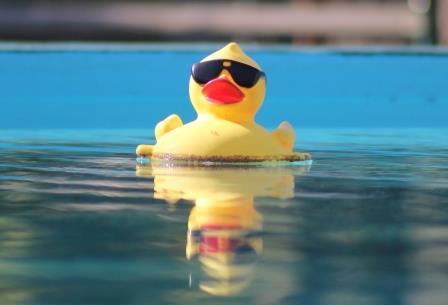Saving Salter’s Duck: How we’re building better digital preservation
A collaborative effort across ISG has been launched to bring new life to a rather special “duck” and invaluable work of University of Edinburgh staff, as a legacy web service is set to be decommissioned.

The now obsolete Homepages service is being decommissioned after years of life support and migration across servers.
Homepages was formerly used by staff and individuals with UoE accounts to save and publish their work, enabling them to share it with students.
However, last year it was decided that the service was no longer sustainable and should be closed.
But before this could happen a team from Applications Service Management, ITI Enterprise Services and University Archives launched an initiative to relocate content accumulated in Homepages.
Their efforts were triggered by Stephen Salter, Emeritus Professor of Design Engineering at the University of Edinburgh, who feared that the closure of Homepages could result in the loss of invaluable work.
Professor Salter is a titan in the fields of renewable energy and geoengineering, perhaps most famous for his celebrated and eponymous “nodding duck”.
Also known as the Edinburgh duck this device converts wave power into electricity and was initially developed through Professor Salter’s study on a lavatory cistern while at the University.
It was created in response to the oil crisis in the 1970s and remains an important tool in UK wave energy research.
Thanks to the project team’s efforts, content from Homepages has now been successfully relocated to a better-supported server while the team develops a long-term preservation strategy.
Sara Day Thomson, Digital Archivist at UoE’s Centre for Research Collections, said: “Digital resources can rapidly become obsolete or inaccessible and this collaborative project brings a welcome opportunity for the University Archives to work closely with Service Management and ITI Enterprise to find solutions for long-term, sustainable preservation.
“The University has only just begun addressing the need to archive its vast digital estate.
“This initiative will provide new insights and collaborative approaches for archiving the many other legacy and endangered resources held across the University in order to make them more accessible to the University’s research communities and wider public.
“Success of this initiative would enable the University Archives to provide access to the former Homepages content for generations to come.”
Saving actual ducks is of course conservation but with digital assets we are interested in preservation for the University Archive and posterity.
The University of Edinburgh is a member of the Digital Preservation Coalition, an international community of organisations working together to address the digital memory gap.
As Members, the University has access to many resources and training about basic concepts in digital preservation, such as the Digital Preservation Handbook and Novice to Know-How online training.
These resources are available via this link: https://www.dpconline.org/
If you have any queries about the digital preservation of your own resources, get in touch with the Digital Archivist at Sara.Thomson@ed.ac.uk.

